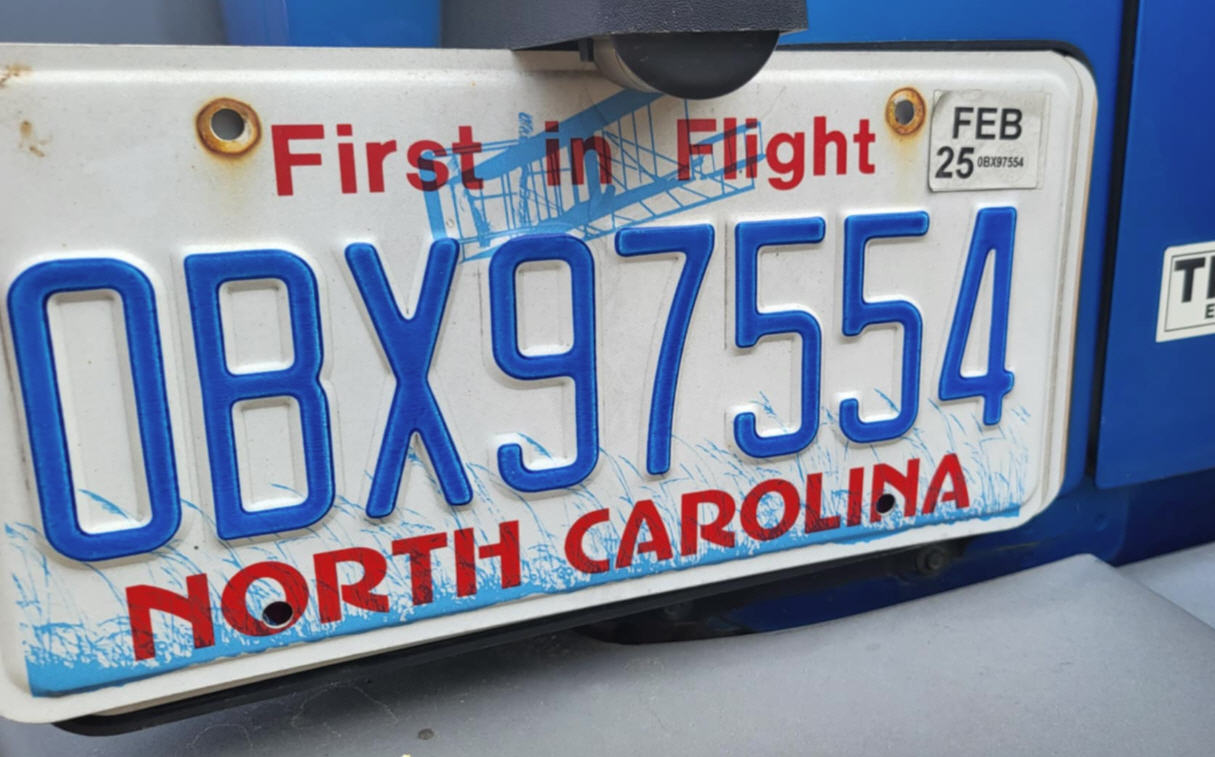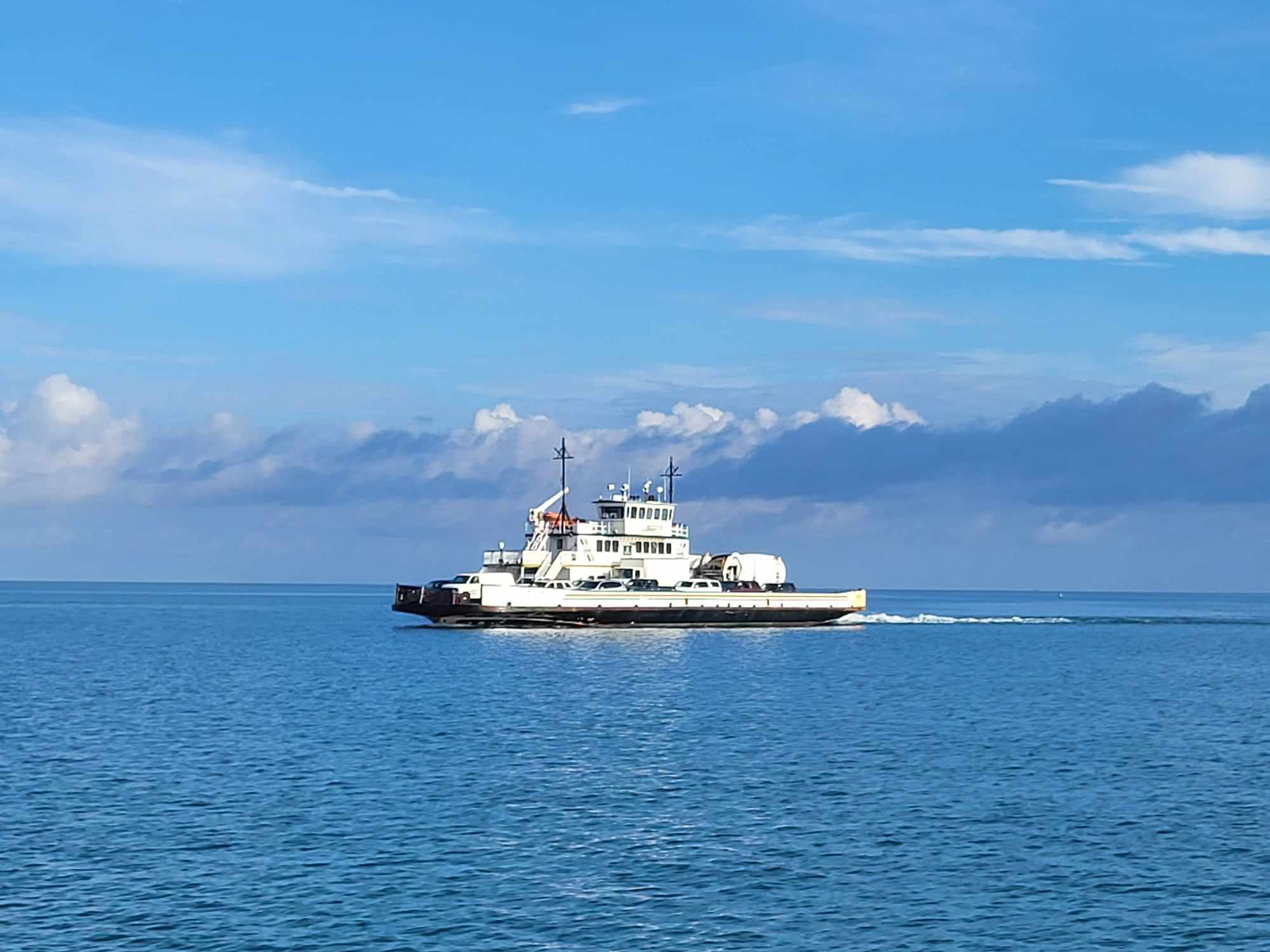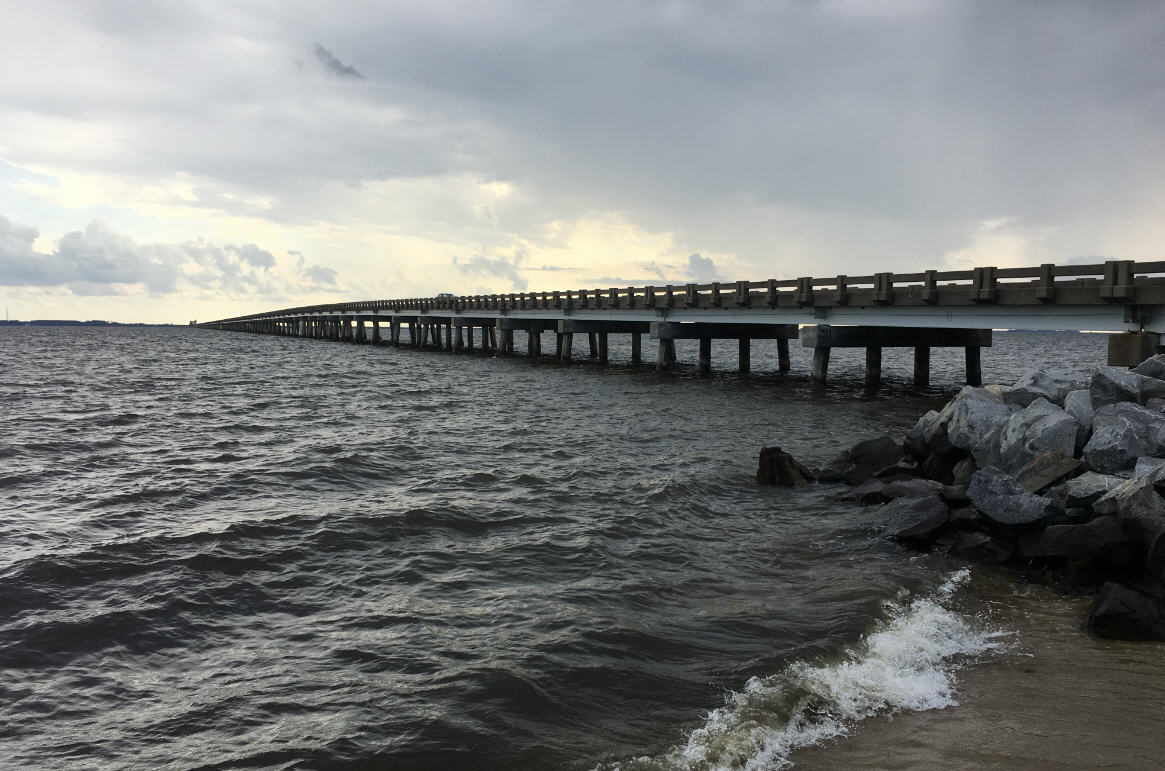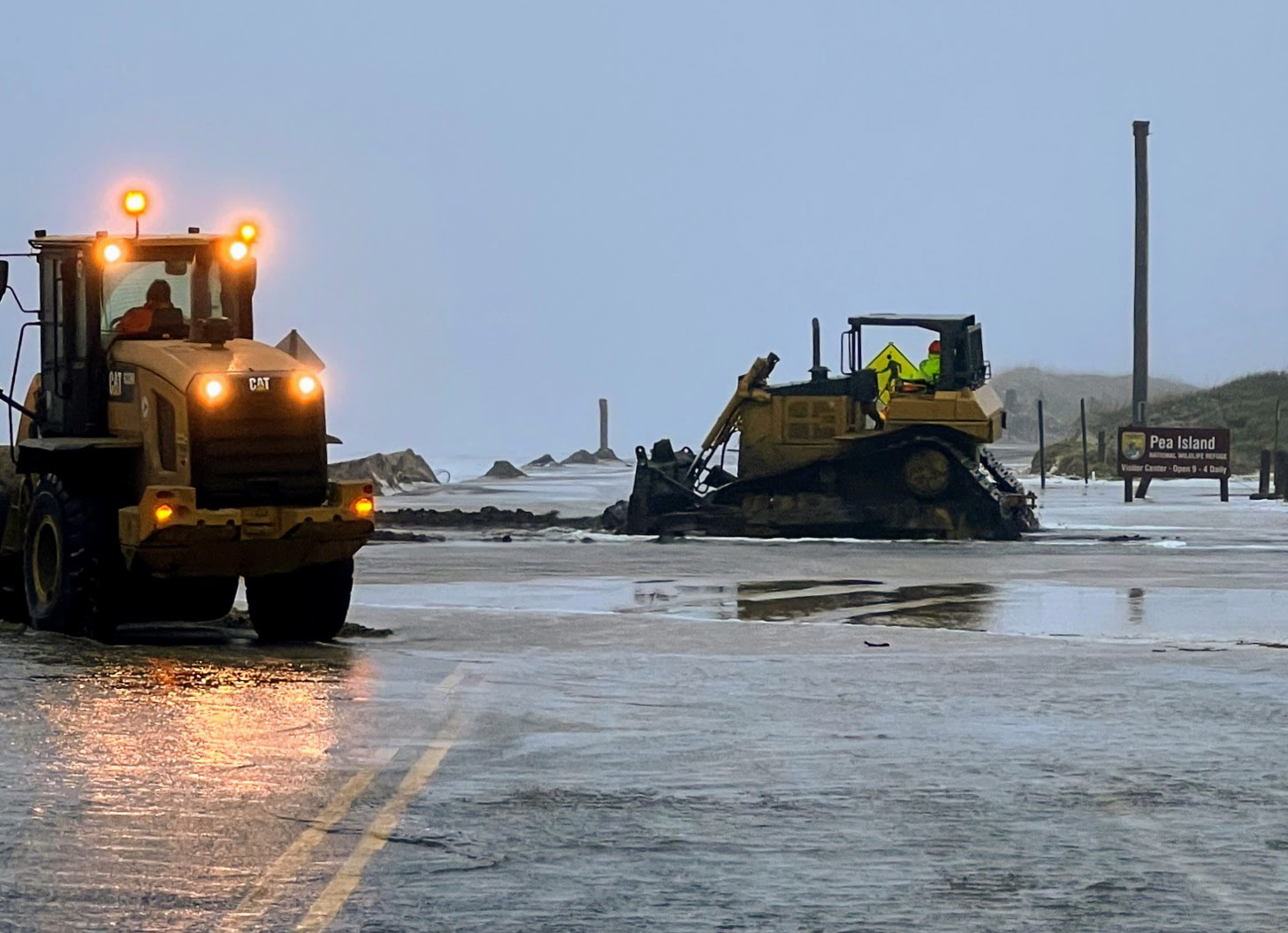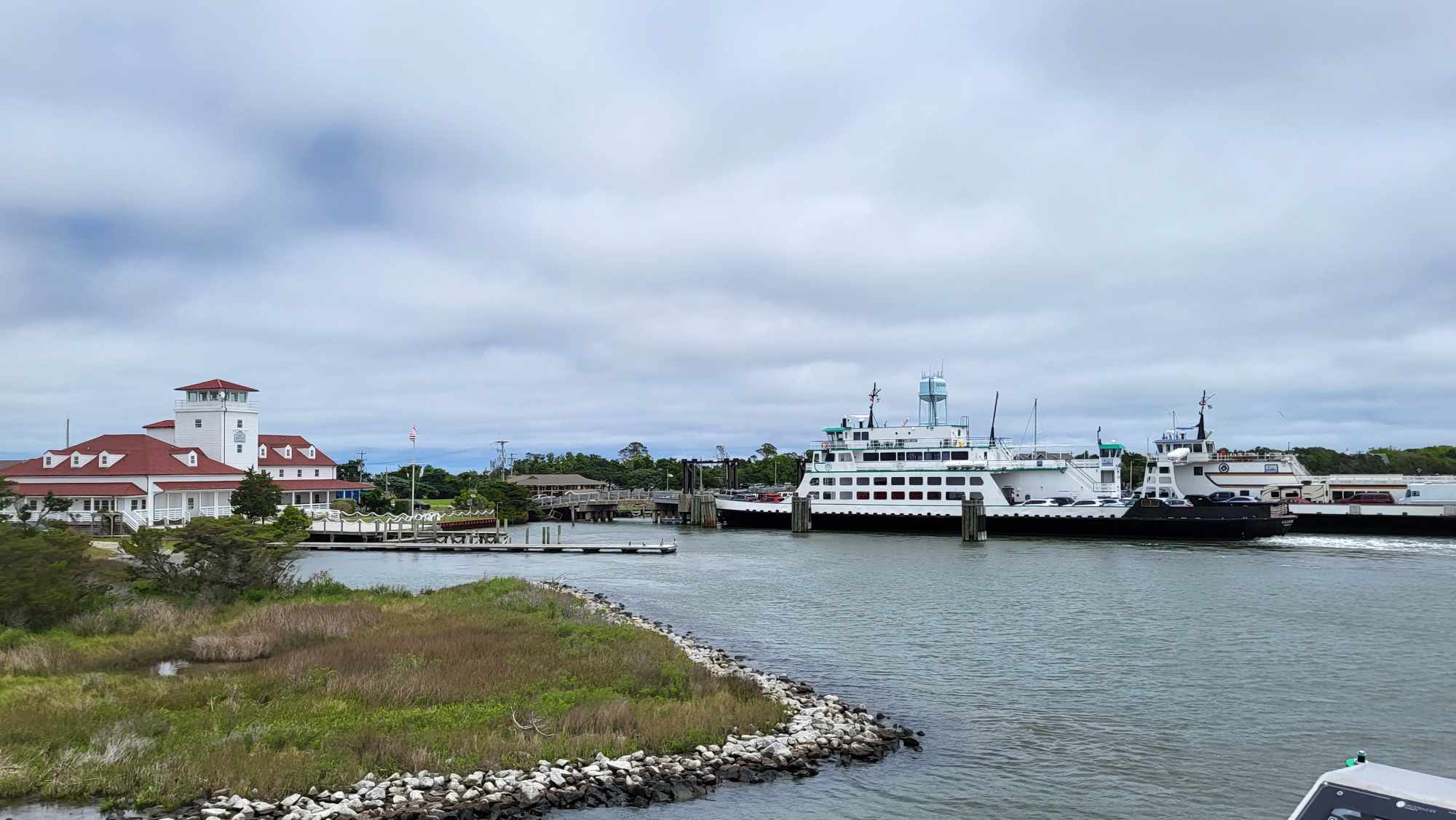UPDATE: H.R. 4094 is headed to the House floor for a vote By IRENE NOLAN
UPDATE: H.R. 4094 is headed to the House floor for a vote
By IRENE NOLAN
By IRENE NOLAN
By IRENE NOLAN
The U.S. House of Representatives’ Committee on Natural Resources voted today to send H.R. 4094, a bill that would overturn the Park Service’s new off-road vehicle plan for the Cape Hatteras National Seashore, to the House floor.
The vote was 24 to 18, pretty much split along party lines, in favor of reporting the bill favorably out of committee. The committee has 26 Republicans and 19 Democrats.
It is now up to the House leadership when the bill is scheduled for a vote by the full House of Representatives.
The bill was introduced by U.S. Rep. Walter Jones, R-N.C., in February and had a hearing before the House Subcommittee on National Parks, Forests, and Public Lands on April 27.
H.R. 4094, would overturn the final off-road vehicle plan, end a court-agreed-to consent decree, and return management at the Cape Hatteras National Seashore to the 2007 Interim Protected Species Management Plan.
The bill would “authorize pedestrian and motorized vehicular access” at the seashore and may also be called the “Preserving Public Access to Cape Hatteras Beaches Act.” If the bill passes, the interim strategy would remain in place until the Park Service devises another long-term plan that is less restrictive.
“Hallelujah,” said Allen Burrus of Hatteras, co-chairman of the Dare County Board of Commissioners, after today’s committee mark-up session of the committee.
The committee’s consideration of the bill was brief.
Committee chairman Doc Hastings, R-Washington, called on Rep. Rob Bishop, R-Utah, chairman of the subcommittee that considered the bill, and Rep. Raul Grijalva, D-Ariz., the ranking member of the subcommittee, for discussion.
Both members made remarks very similar to the ones they made at the subcommittee hearing.
Bishop said the bill is “an opportunity for us to promote the national parks for the purpose for which they were intended.”
A key element of that purpose, he said, is recreation.
He added that the bill would create jobs and would cost the government nothing.
He referred to the 2007 interim plan as one that was properly vetted by the Park Service and the public.
The community, he said, “was not thrilled” with the interim plan but could live with it.
Bishop blamed “extreme” special interest groups” for interfering, first with a court-agreed-to consent decree and then a special rule that adopted many elements of the consent decree and went ever further with restrictions on access by off-road vehicles and pedestrians.
Under the final rule, Bishop said, “Families won’t vacation there, fishing trips won’t happen, hotel rooms will be vacant, and restaurants will be empty.”
Grijalva raised the same objections that he made at the subcommittee hearing.
He said that visitation was up at the seashore since the 2008 consent decree and that birds and turtles were having more nesting success.
“It sounded to me like a Defenders of Wildlife press release,” Burrus said.
No amendments to the bill were proposed, and the entire discussion took fewer than 10 minutes.
“We’re certainly encouraged by this,” said John Couch, president of the Outer Banks Preservation Association, who testified in favor of the bill at the subcommittee hearing.
However, he noted “It’s going to be a long process to restore reasonable access to the seashore.”
“We are asking,” he added, “only for what is reasonable for a park that was established as a recreation area first and foremost.”
Warren Judge, chairman of the Dare County Board of Commissioners, said he was very pleased with today’s vote and “appreciative of all Congressman Jones has done to be very responsive to the people who live in the Cape Hatteras National Seashore Recreational Area.”
Judge added that if the bill is passed by Congress, it will ensure that “common sense and peer-reviewed science, not special interest groups, will rule in the park.”
The bill is Jones’ third attempt at introducing legislation returning the park to the 2007 interim plan since 2008.
This is the first time the bill has been reported favorably out of committee and sent to the house floor.
“This is a major win for the people of Hatteras and the state of North Carolina,” said Jones. “This bill is about jobs and the taxpayers’ right to access the recreational areas they own. It’s about restoring balance and common sense to Park Service management. I would like to thank the Natural Resources Committee for doing what is right.”
If the bill is passed by the house, it goes on to the Senate, where a companion bill with the same language was introduced by North Carolina two U.S. senators, Republican Richard Burr and Democrat Kay Hagan.
“The Senate committee is where the problem will be,” Burrus predicted. That committee is controlled by Democrats.
A summary of today’s committee markup will be available at its website, http://naturalresources.house.gov/Calendar/EventSingle.aspx?EventID=298138.
The U.S. House of Representatives’ Committee on Natural Resources voted today to send H.R. 4094, a bill that would overturn the Park Service’s new off-road vehicle plan for the Cape Hatteras National Seashore, to the House floor.
The vote was 24 to 18, pretty much split along party lines, in favor of reporting the bill favorably out of committee. The committee has 26 Republicans and 19 Democrats.
It is now up to the House leadership when the bill is scheduled for a vote by the full House of Representatives.
The bill was introduced by U.S. Rep. Walter Jones, R-N.C., in February and had a hearing before the House Subcommittee on National Parks, Forests, and Public Lands on April 27.
H.R. 4094, would overturn the final off-road vehicle plan, end a court-agreed-to consent decree, and return management at the Cape Hatteras National Seashore to the 2007 Interim Protected Species Management Plan.
The bill would “authorize pedestrian and motorized vehicular access” at the seashore and may also be called the “Preserving Public Access to Cape Hatteras Beaches Act.” If the bill passes, the interim strategy would remain in place until the Park Service devises another long-term plan that is less restrictive.
“Hallelujah,” said Allen Burrus of Hatteras, co-chairman of the Dare County Board of Commissioners, after today’s committee mark-up session of the committee.
The committee’s consideration of the bill was brief.
Committee chairman Doc Hastings, R-Washington, called on Rep. Rob Bishop, R-Utah, chairman of the subcommittee that considered the bill, and Rep. Raul Grijalva, D-Ariz., the ranking member of the subcommittee, for discussion.
Both members made remarks very similar to the ones they made at the subcommittee hearing.
Bishop said the bill is “an opportunity for us to promote the national parks for the purpose for which they were intended.”
A key element of that purpose, he said, is recreation.
He added that the bill would create jobs and would cost the government nothing.
He referred to the 2007 interim plan as one that was properly vetted by the Park Service and the public.
The community, he said, “was not thrilled” with the interim plan but could live with it.
Bishop blamed “extreme” special interest groups” for interfering, first with a court-agreed-to consent decree and then a special rule that adopted many elements of the consent decree and went ever further with restrictions on access by off-road vehicles and pedestrians.
Under the final rule, Bishop said, “Families won’t vacation there, fishing trips won’t happen, hotel rooms will be vacant, and restaurants will be empty.”
Grijalva raised the same objections that he made at the subcommittee hearing.
He said that visitation was up at the seashore since the 2008 consent decree and that birds and turtles were having more nesting success.
“It sounded to me like a Defenders of Wildlife press release,” Burrus said.
No amendments to the bill were proposed, and the entire discussion took fewer than 10 minutes.
“We’re certainly encouraged by this,” said John Couch, president of the Outer Banks Preservation Association, who testified in favor of the bill at the subcommittee hearing.
However, he noted “It’s going to be a long process to restore reasonable access to the seashore.”
“We are asking,” he added, “only for what is reasonable for a park that was established as a recreation area first and foremost.”
Warren Judge, chairman of the Dare County Board of Commissioners, said he was very pleased with today’s vote and “appreciative of all Congressman Jones has done to be very responsive to the people who live in the Cape Hatteras National Seashore Recreational Area.”
Judge added that if the bill is passed by Congress, it will ensure that “common sense and peer-reviewed science, not special interest groups, will rule in the park.”
The bill is Jones’ third attempt at introducing legislation returning the park to the 2007 interim plan since 2008.
This is the first time the bill has been reported favorably out of committee and sent to the house floor.
“This is a major win for the people of Hatteras and the state of North Carolina,” said Jones. “This bill is about jobs and the taxpayers’ right to access the recreational areas they own. It’s about restoring balance and common sense to Park Service management. I would like to thank the Natural Resources Committee for doing what is right.”
If the bill is passed by the house, it goes on to the Senate, where a companion bill with the same language was introduced by North Carolina two U.S. senators, Republican Richard Burr and Democrat Kay Hagan.
“The Senate committee is where the problem will be,” Burrus predicted. That committee is controlled by Democrats.
A summary of today’s committee markup will be available at its website, http://naturalresources.house.gov/Calendar/EventSingle.aspx?EventID=298138.
The U.S. House of Representatives’ Committee on Natural Resources voted today to send H.R. 4094, a bill that would overturn the Park Service’s new off-road vehicle plan for the Cape Hatteras National Seashore, to the House floor.
The vote was 24 to 18, pretty much split along party lines, in favor of reporting the bill favorably out of committee. The committee has 26 Republicans and 19 Democrats.
It is now up to the House leadership when the bill is scheduled for a vote by the full House of Representatives.
The bill was introduced by U.S. Rep. Walter Jones, R-N.C., in February and had a hearing before the House Subcommittee on National Parks, Forests, and Public Lands on April 27.
H.R. 4094, would overturn the final off-road vehicle plan, end a court-agreed-to consent decree, and return management at the Cape Hatteras National Seashore to the 2007 Interim Protected Species Management Plan.
The bill would “authorize pedestrian and motorized vehicular access” at the seashore and may also be called the “Preserving Public Access to Cape Hatteras Beaches Act.” If the bill passes, the interim strategy would remain in place until the Park Service devises another long-term plan that is less restrictive.
“Hallelujah,” said Allen Burrus of Hatteras, co-chairman of the Dare County Board of Commissioners, after today’s committee mark-up session of the committee.
The committee’s consideration of the bill was brief.
Committee chairman Doc Hastings, R-Washington, called on Rep. Rob Bishop, R-Utah, chairman of the subcommittee that considered the bill, and Rep. Raul Grijalva, D-Ariz., the ranking member of the subcommittee, for discussion.
Both members made remarks very similar to the ones they made at the subcommittee hearing.
Bishop said the bill is “an opportunity for us to promote the national parks for the purpose for which they were intended.”
A key element of that purpose, he said, is recreation.
He added that the bill would create jobs and would cost the government nothing.
He referred to the 2007 interim plan as one that was properly vetted by the Park Service and the public.
The community, he said, “was not thrilled” with the interim plan but could live with it.
Bishop blamed “extreme” special interest groups” for interfering, first with a court-agreed-to consent decree and then a special rule that adopted many elements of the consent decree and went ever further with restrictions on access by off-road vehicles and pedestrians.
Under the final rule, Bishop said, “Families won’t vacation there, fishing trips won’t happen, hotel rooms will be vacant, and restaurants will be empty.”
Grijalva raised the same objections that he made at the subcommittee hearing.
He said that visitation was up at the seashore since the 2008 consent decree and that birds and turtles were having more nesting success.
“It sounded to me like a Defenders of Wildlife press release,” Burrus said.
No amendments to the bill were proposed, and the entire discussion took fewer than 10 minutes.
“We’re certainly encouraged by this,” said John Couch, president of the Outer Banks Preservation Association, who testified in favor of the bill at the subcommittee hearing.
However, he noted “It’s going to be a long process to restore reasonable access to the seashore.”
“We are asking,” he added, “only for what is reasonable for a park that was established as a recreation area first and foremost.”
Warren Judge, chairman of the Dare County Board of Commissioners, said he was very pleased with today’s vote and “appreciative of all Congressman Jones has done to be very responsive to the people who live in the Cape Hatteras National Seashore Recreational Area.”
Judge added that if the bill is passed by Congress, it will ensure that “common sense and peer-reviewed science, not special interest groups, will rule in the park.”
The bill is Jones’ third attempt at introducing legislation returning the park to the 2007 interim plan since 2008.
This is the first time the bill has been reported favorably out of committee and sent to the house floor.
“This is a major win for the people of Hatteras and the state of North Carolina,” said Jones. “This bill is about jobs and the taxpayers’ right to access the recreational areas they own. It’s about restoring balance and common sense to Park Service management. I would like to thank the Natural Resources Committee for doing what is right.”
If the bill is passed by the house, it goes on to the Senate, where a companion bill with the same language was introduced by North Carolina two U.S. senators, Republican Richard Burr and Democrat Kay Hagan.
“The Senate committee is where the problem will be,” Burrus predicted. That committee is controlled by Democrats.
A summary of today’s committee markup will be available at its website, http://naturalresources.house.gov/Calendar/EventSingle.aspx?EventID=298138.
The U.S. House of Representatives’ Committee on Natural Resources voted today to send H.R. 4094, a bill that would overturn the Park Service’s new off-road vehicle plan for the Cape Hatteras National Seashore, to the House floor.
The vote was 24 to 18, pretty much split along party lines, in favor of reporting the bill favorably out of committee. The committee has 26 Republicans and 19 Democrats.
It is now up to the House leadership when the bill is scheduled for a vote by the full House of Representatives.
The bill was introduced by U.S. Rep. Walter Jones, R-N.C., in February and had a hearing before the House Subcommittee on National Parks, Forests, and Public Lands on April 27.
H.R. 4094, would overturn the final off-road vehicle plan, end a court-agreed-to consent decree, and return management at the Cape Hatteras National Seashore to the 2007 Interim Protected Species Management Plan.
The bill would “authorize pedestrian and motorized vehicular access” at the seashore and may also be called the “Preserving Public Access to Cape Hatteras Beaches Act.” If the bill passes, the interim strategy would remain in place until the Park Service devises another long-term plan that is less restrictive.
“Hallelujah,” said Allen Burrus of Hatteras, co-chairman of the Dare County Board of Commissioners, after today’s committee mark-up session of the committee.
The committee’s consideration of the bill was brief.
Committee chairman Doc Hastings, R-Washington, called on Rep. Rob Bishop, R-Utah, chairman of the subcommittee that considered the bill, and Rep. Raul Grijalva, D-Ariz., the ranking member of the subcommittee, for discussion.
Both members made remarks very similar to the ones they made at the subcommittee hearing.
Bishop said the bill is “an opportunity for us to promote the national parks for the purpose for which they were intended.”
A key element of that purpose, he said, is recreation.
He added that the bill would create jobs and would cost the government nothing.
He referred to the 2007 interim plan as one that was properly vetted by the Park Service and the public.
The community, he said, “was not thrilled” with the interim plan but could live with it.
Bishop blamed “extreme” special interest groups” for interfering, first with a court-agreed-to consent decree and then a special rule that adopted many elements of the consent decree and went ever further with restrictions on access by off-road vehicles and pedestrians.
Under the final rule, Bishop said, “Families won’t vacation there, fishing trips won’t happen, hotel rooms will be vacant, and restaurants will be empty.”
Grijalva raised the same objections that he made at the subcommittee hearing.
He said that visitation was up at the seashore since the 2008 consent decree and that birds and turtles were having more nesting success.
“It sounded to me like a Defenders of Wildlife press release,” Burrus said.
No amendments to the bill were proposed, and the entire discussion took fewer than 10 minutes.
“We’re certainly encouraged by this,” said John Couch, president of the Outer Banks Preservation Association, who testified in favor of the bill at the subcommittee hearing.
However, he noted “It’s going to be a long process to restore reasonable access to the seashore.”
“We are asking,” he added, “only for what is reasonable for a park that was established as a recreation area first and foremost.”
Warren Judge, chairman of the Dare County Board of Commissioners, said he was very pleased with today’s vote and “appreciative of all Congressman Jones has done to be very responsive to the people who live in the Cape Hatteras National Seashore Recreational Area.”
Judge added that if the bill is passed by Congress, it will ensure that “common sense and peer-reviewed science, not special interest groups, will rule in the park.”
The bill is Jones’ third attempt at introducing legislation returning the park to the 2007 interim plan since 2008.
This is the first time the bill has been reported favorably out of committee and sent to the house floor.
“This is a major win for the people of Hatteras and the state of North Carolina,” said Jones. “This bill is about jobs and the taxpayers’ right to access the recreational areas they own. It’s about restoring balance and common sense to Park Service management. I would like to thank the Natural Resources Committee for doing what is right.”
If the bill is passed by the house, it goes on to the Senate, where a companion bill with the same language was introduced by North Carolina two U.S. senators, Republican Richard Burr and Democrat Kay Hagan.
“The Senate committee is where the problem will be,” Burrus predicted. That committee is controlled by Democrats.
A summary of today’s committee markup will be available at its website, http://naturalresources.house.gov/Calendar/EventSingle.aspx?EventID=298138.
Subject
Name
(required, will not be published)
(required, will not be published)
City :
State :
Your Comments:
May be posted on the Letters to the Editor page at the discretion of the editor.
May be posted on the Letters to the Editor page at the discretion of the editor.
May be posted on the Letters to the Editor page at the discretion of the editor.
May be posted on the Letters to the Editor page at the discretion of the editor.





